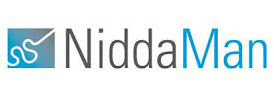NiddaMan

NiddaMan (FKZ 02WRM1367; May 2015 – April 2018) is one of 14 projects funded by the German Ministry for Education and Research (BMBF) in the focal point „Regionales Wasserressourcen-Management für nachhaltigen Gewässerschutz in Deutschland“ (ReWaM) within the frame program „Forschung für Nachhaltige Entwicklung“ (FONA). It is coordinated by the group of Jörg Oehlmann at Goethe University Frankfurt/Main and combines the expertise of 12 full and associated partners. An interdisciplinary team of scientists, practitioners, and stakeholders address the importance of structure, macro-, and micropollutants for streams and assesses the effectivity of management activities to overcome deficits associated with these factors.
As a model region, the Nidda catchment has been selected. The Nidda River and its tributaries drain a densely populated and anthropogenically shaped region in southern Hesse, north of Frankfurt. The starting point for this project was the suspicion that most of German surface waters probably will not meet the criteria raised in the Water Framework Directive. Therefore, not only the restoration of the river structure, but also other factors such as pharmaceuticals, pesticides, fragrants and, in addition, neobiota which may increase in significance with ongoing global change are in the focus of NiddaMan.
Water resources management thus requires sound information on the effectivity of actions that tackle deficits in a target-oriented, cost-efficient, and sustainable way. The overall goal of NiddaMan is to provide system solutions for such integrated river basin management.
Tübingen University's contribution to NiddaMan is to assess fish health in the Nidda / Usa / Horloff system. Fish embryo toxicity tests using developing zebrafish embryos that give information on water and sediment quality are combined with active monitoring experiments involving caged trout and passive monitoring of feral fish species that are abundant in the river system. In this context, histological and biochemical biomarkers provide information on the health of fish exposed to the environmental situation.
| Project partners: |
|---|
| Goethe University Frankfurt – Aquatic Ecotoxicology Section (Jörg Oehlmann, Ulrike Schulte-Oehlmann, Matthias Oetken, Martina Goldmann, Denise Brettschneider, Katharina Heye, Simone Ziebart) |
| German Federal Institute of Hydrology (BfG) Koblenz – Water Chemistry Section (Thomas Ternes, Arne Wick, Uwe Kunkel, Gudrun Nuerenberg) |
| University of Tübingen – Animal Physiological Ecology Section (Heinz Köhler, Rita Triebskorn, Andreas Dieterich, Mona Schweizer) |
| Technical University Darmstadt – Institute IWAR (Peter Cornel, Christian Schaum, Kai Wißbrok, Thomas Fundneider) |
| Karlsruhe Institute of Technology (KIT) – Institute for Water Development (Stephan Fuchs, Ramona Wander, Steffen Kittlaus, Sara Ziegler) |
| Institute for Social Ecological Research (ISOE) (Carolin Völker, Oliver Schulz) |
| Unger Ingenieure GmbH (Stefan Knoll, Lutz Härtel) |
| BGS Wasserwirtschaft GmbH (Stefan Wallisch) |
| Regierungspräsidium Darmstadt (Gerd Hofmann, Evelyn Mueller, Harald Lütkenhaus-Kopp) |
| Hessisches Landesamt für Naturschutz, Umwelt und Geologie (Eugen Thielen, Peter Seel, Thomas Ott, Mechthild Banning) |
| Wetteraukreis (Thomas Buch, Rainer Stock, Lukas Raffelsiefen) |
| ahu AG Aachen (Wolfgang Kappler) |
